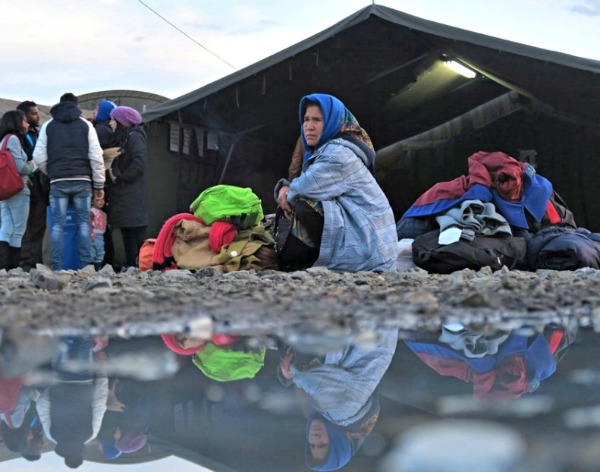
Lebanon has hosted about one million Syrian refugees since the start of the war in 2011. The Jesuit Refugee Service (JRS) runs programmes to help these communities cope with and adapt to the hardships they face as a result of prolonged displacement.
Trauma of Refugee Life
The trauma of this kind of life affects people in many ways. JRS staff have interviewed many refugees in Lebanon and discovered that they endure a range of challenges. These include: living on a very low or non-existent income, food insecurity, discrimination, unclean water and sanitation, unsafe housing, limitations on their movement, fear about their status in Lebanon, and lack of future prospects. In addition they face increasing exploitation and debt, as well as the the depletion of any assets they may have, which are needed to compensate for their lack of livelihoods.
Coping Strategies
In an attempt to deal with these aspects of urban refugee living, in places like Bourj Hammoud in Lebanon, people sometimes use coping strategies that have a negative impact on their health and wellbeing. These include reducing the size and frequency of meals, increasing their debts, borrowing money to pay for food, begging, taking children out of school to place them in employment, and looking for additional ways to earn money that may involve high-risk activities.
Psychosocial Support
Irish Jesuit Missions is among those who fund JRS programmes to provide these people with psychosocial support and help. The psychosocial approach views individuals in the context of the combined influence that psychological factors and the surrounding social environment have on their physical and mental wellness and their ability to function and flourish.
Home Visits
JRS staff members visit refugee families regularly in their homes, which enables them to develop strong relationships and bonds. The home visits team pays great attention to social and cultural sensitivies which helps families feel at ease and maintain their trust. One of the two team-members is always a female, an important factor which allows them to enter houses even when the man of the family is not there. These visits are important to get to know the families, but also to identify what challenges they have, that JRS may be able to support them in dealing with.
Food and Hygiene Kits
To help people to deal with the challenges they face, without needing to resort to the use of negative coping strategies, JRS distributes food baskets and hygiene kits to families. This helps to alleviate the health risks caused by malnutrition and poor hygiene, but it does not fully solve the problems that refugee communities face in accessing healthcare. Many families are unable to afford medicine that they need, or to get access to surgery, both of which cause their health to deteriorate. JRS also provides some health assistance to people in need of medical care.
Livelihood Tools
People living in these refugee communities often lack even the most basic resources that would help them to begin to earn a living. Through home visits, the JRS team learned that often all that is needed is a simple tool, for the individuals to be able to earn a small amount of income, with dignity. Something as simple as a sewing machine or hair dryer can make all the difference. In cases like this the JRS team will provide the item and deliver it to the person’s home.
Mutual Respect
The bonds fostered by the home visits and the mutual respect that emerges from them are the key to helping people to overcome the trauma they have endured since becoming a refugee, and to not just survive, but thrive.

